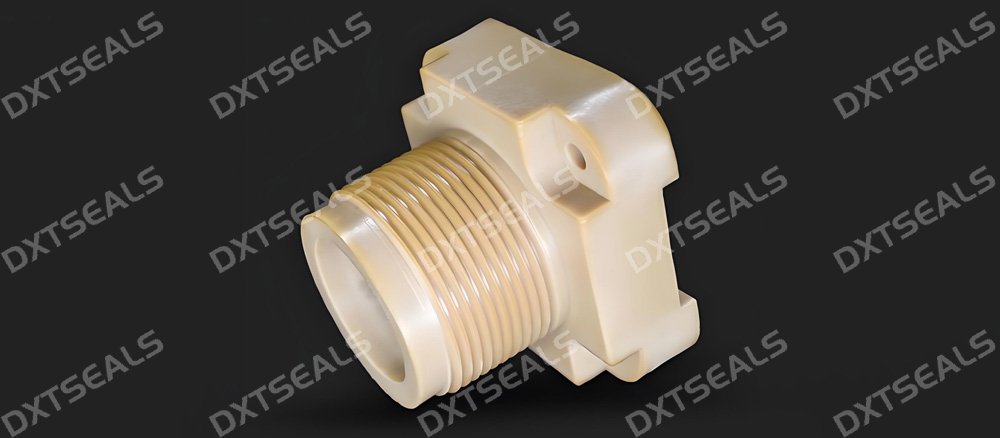Introduction
As modern electrical and electronic systems demand higher performance, the need for advanced insulation materials has grown. Polyetheretherketone (PEEK) has emerged as a leading high-performance polymer for electrical insulation, offering exceptional dielectric properties, thermal stability, and chemical resistance.
This article explores why PEEK is an ideal material for electrical insulation systems, highlighting its benefits, applications, and performance in demanding environments.
1. Why PEEK is Ideal for Electrical Insulation
PEEK is widely used in electrical insulation systems due to its unique combination of properties, including:
1.1 Superior Dielectric Strength
- PEEK exhibits a high dielectric strength (around 17-24 kV/mm), making it ideal for high-voltage insulation.
- Provides excellent electrical isolation, preventing short circuits and electrical breakdowns.
1.2 High-Temperature Resistance
- Can withstand continuous operation at 250°C (482°F), with short-term exposure up to 300°C (572°F).
- Unlike traditional insulation materials, PEEK does not degrade under prolonged heat exposure.
1.3 Chemical and Moisture Resistance
- Resistant to corrosive chemicals, solvents, and humidity, ensuring longevity in harsh environments.
- Unlike conventional plastics, PEEK does not absorb moisture, maintaining its electrical insulating properties even in humid conditions.
1.4 Mechanical Strength and Durability
- Provides excellent mechanical integrity even at high temperatures, ensuring reliable insulation in dynamic and load-bearing applications.
- Resistant to wear, impact, and deformation, making it ideal for harsh industrial environments.
2. Key Applications of PEEK in Electrical Insulation Systems
2.1 High-Voltage Electrical Components
- PEEK is used in cable insulation, wire coatings, and high-voltage connectors due to its excellent dielectric strength.
- Helps prevent electrical arcing and short circuits, improving system reliability.
2.2 Printed Circuit Boards (PCBs) and Semiconductor Components
- PEEK is used as a substrate material for PCBs and semiconductor packaging, where thermal stability and electrical insulation are crucial.
- Reduces signal interference and improves component lifespan.
2.3 Transformers and Motor Insulation
- In electric motors and transformers, PEEK acts as a thermal and electrical insulator, ensuring optimal performance under high heat and mechanical stress.
- Used for insulating bushings, slot liners, and winding protection.
2.4 Aerospace and Automotive Electrical Systems
- PEEK is widely used in aircraft wiring, sensors, and automotive electrical systems due to its lightweight nature and durability.
- Ensures reliable insulation in extreme temperatures and high-vibration environments.
2.5 Medical and Electronic Devices
- PEEK is used in implantable medical electronics, where biocompatibility and insulation are required.
- Protects sensitive electronic components in medical imaging and diagnostic devices.
3. PEEK vs. Other Insulation Materials: A Comparison
| Property | PEEK | PTFE (Teflon) | Polyimide (Kapton) | Epoxy Resins |
|---|---|---|---|---|
| Dielectric Strength (kV/mm) | 17-24 | 10-20 | 12-25 | 10-20 |
| Maximum Temperature (°C) | 250°C (482°F) | 260°C (500°F) | 260°C (500°F) | 150-180°C (302-356°F) |
| Moisture Resistance | Excellent | Excellent | Moderate | Poor |
| Mechanical Strength | High | Low | Moderate | Low |
| Chemical Resistance | Outstanding | Excellent | Good | Moderate |
| Machinability | Good | Difficult | Moderate | Difficult |
✔ PEEK offers superior mechanical strength compared to PTFE and Kapton, making it ideal for applications requiring durability.
✔ Unlike epoxy resins, PEEK maintains its properties at high temperatures and in chemically aggressive environments.
4. Cost vs. Performance: Is PEEK Worth It?
- Higher initial cost compared to PTFE and polyimides.
- Longer lifespan and reduced maintenance costs make PEEK a cost-effective choice in high-performance applications.
- Improves equipment reliability, reducing downtime and electrical failures.
5. Conclusion: Why Choose PEEK for Electrical Insulation?
PEEK stands out as an exceptional insulation material due to its:
✔ High dielectric strength for superior electrical isolation.
✔ Excellent heat resistance, operating at 250°C (482°F).
✔ Outstanding mechanical and chemical stability for harsh environments.
✔ Versatility across industries, from aerospace to medical electronics.
For applications requiring high-performance electrical insulation, PEEK is the go-to material, providing durability, reliability, and superior insulation properties.

